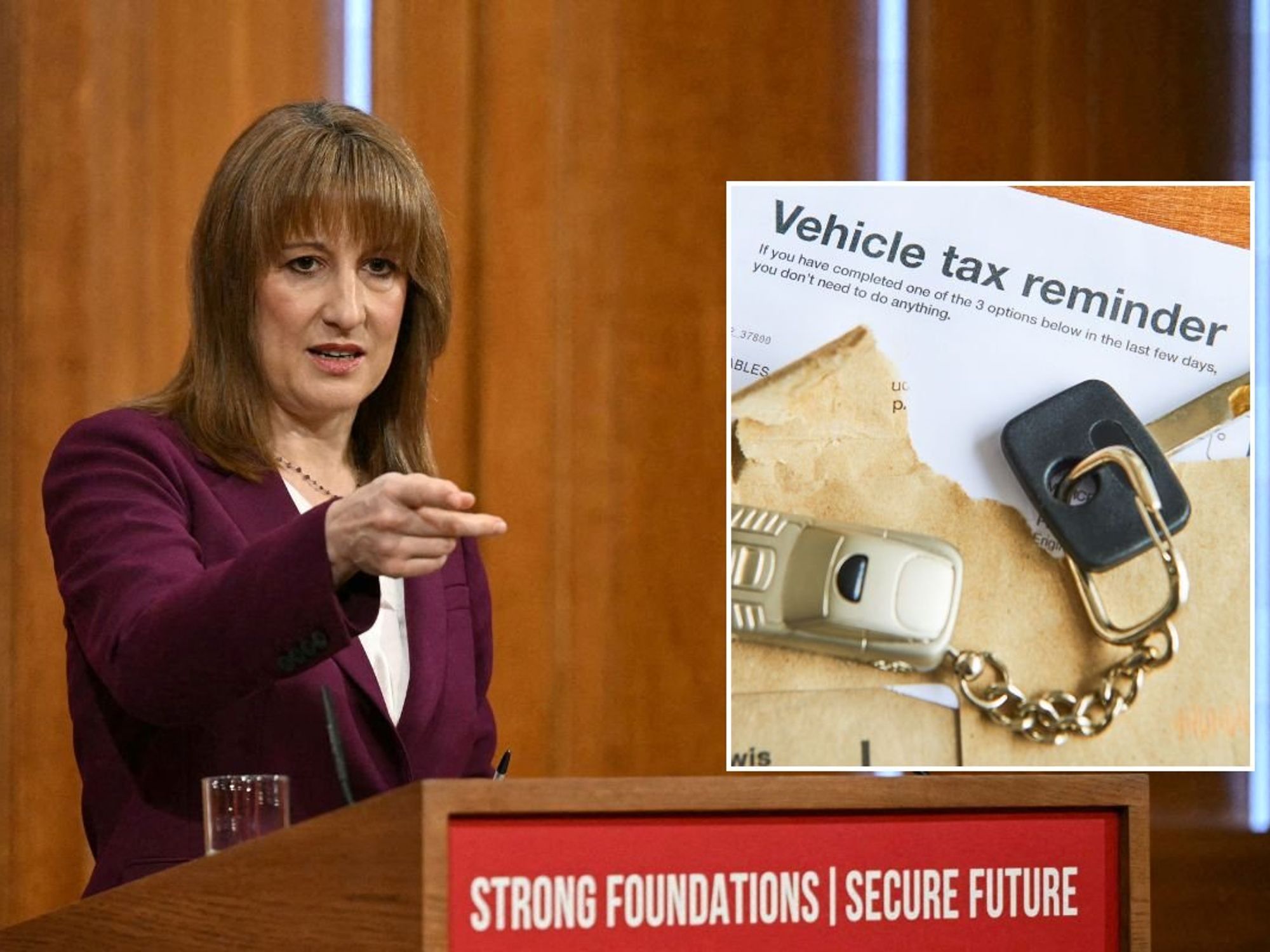MAPPED: The migrant hotels set to close under Labour's asylum crackdown - is one located in YOUR area?

Patrick Christys: Get ready for illegal migrant tent cities |
GB News
Asylum hotels up and down the country are set to be closed under Labour's new plans
Don't Miss
Most Read
Trending on GB News
Following Rachel Reeves' announcement to remove all asylum seeker hotels by 2029, GB News has pinpointed where they are located.
It comes after Reeves promised £1billion worth of savings by speeding up the asylum system, as well as £280million of investment in future years towards the new Border Security Command.
Reeves told the Commons: "The party opposite left behind a broken system: billions of pounds of taxpayers' money spent on housing asylum seekers in hotels, leaving people in limbo and shunting the cost of failure on to local communities.
"We won't let that stand. So I can confirm today that, led by the work of the Home Secretary, we will be ending the costly use of hotels to house asylum seekers in this Parliament."
These hotels are indeed costly. In 2023-24, the UK spent £3.1billion on housing asylum seekers, out of a total asylum support bill of £4.7billion.
Refugee charities welcomed the news, saying that hotels are “hugely expensive” and isolate asylum seekers from local communities, but urged ministers to move faster.
Regular GB News readers will be familiar with our coverage of the tensions these asylum hotels caused in local communities up and down the country.
Below, we have highlighted four that have proven to be particularly divisive.
Chesterfield, Derbyshire
A hotel in Chesterfield has caused unrest for locals, with them calling for its closure after two years of housing asylum seekers.
Locals claim the migrants are making their lives a misery with increasing antisocial behaviour.
Residents say they were "not consulted" when the site reopened under a Home Office contract.
One resident said: "I am not racist, but they are causing problems. They have been loitering on the streets. One of the blokes was filming out the windows."
Peterborough, Cambridgeshire
Up to 146 male asylum seekers were moved into a 70-bedroom hotel near Peterborough.
Gez Chetal, the owner of Thomas Pine Hotel in nearby Thetford, Norfolk, was "offered a load of money to close [the] hotel in for migrants", but refused, stating that people are struggling to sell their houses due to the migrants.
Chetal said: "You've got a hotel with a rowing lake. Beautiful. I used to be the general manager there 20 years ago.
"Fast forward to the present, and all the houses around there are struggling with their prices now. They can't sell their houses because nobody wants to move into the opposite of a hotel, which has got 140 migrants. The people are frightened."
The Home Office has refused to confirm if the hotel is still being used to house asylum seekers.
Berkshire
A hotel near Windsor in Berkshire was once housing asylum seekers, but has now been confirmed to be empty.
Tory MP for Windsor, Jack Rankin, stated he had "received formal confirmation from the Home Office that hotel is now empty".
The announcement follows the owners facing calls to restore the venue or sell up during a fiery public meeting.
Rankin said: "I know there are now concerns locally about the use of the hotel moving forward.
"Shortly after the news came out that the illegal migrants would be moved on, I met with the proprietors to discuss the hotel's future and endeavour to have a constructive relationship with them.
"I made the point that the Manor Hotel should once again be a hotel at the heart of village life - to welcome tourists and business travellers, somewhere to pop in for a drink or have dinner."
Greater Manchester
Nearly 300 asylum seekers, believed to be mainly from the African nation of Eritrea, have been housed in a hotel near Greater Manchester.
The housing has caused uproar with locals in the area, with residents saying it's "very worrying".
Local resident, Brooke Heneghan, told GB News: "There is the heightening feeling of vulnerability and insecurity amongst women in the area.
"The community itself, I feel, had been on edge since it opened. You have parents worried for their children who attend the local schools, adults who don't feel comfortable going to and from work, and also people who are actively choosing other areas to socialise on a weekend as a result of the Cresta Court.
"People simply don't feel safe in their own community and don't feel safe for their children."
More From GB News










